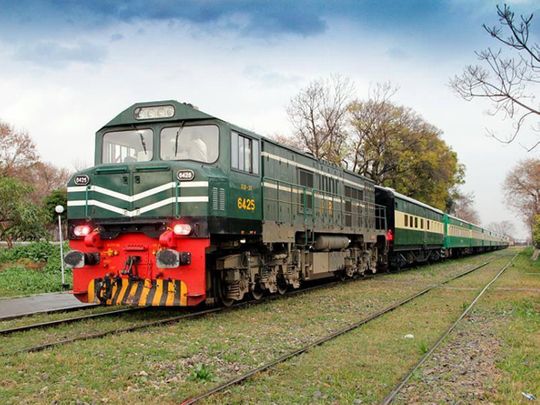
Islamabad: Pakistan Railways has increased fares for the second time in a week that will come into effect on June 21.
The railway has increased the charges for express and freight trains following a record fuel price hike. There will be an increase of 5 per cent in the fares of passenger trains and 10 per cent on freight trains from June 21. There is currently no plan to increase the charges of local passenger trains used by those travelling short-distance routes.
This is the second price hike in train fares in a week. On June 14, Pakistan Railways increased fares of all express passenger trains by 10 per cent and freight charges of all goods trains by 15 per cent.
Pakistan Railways is facing a “massive financial impact of Rs8 billion” due to increasing oil prices which “cannot be avoided without increasing fares and freight charges” and hence there is “no option but to increase fares of all express passenger trains,” Minister for Railways and Aviation Khwaja Saad Rafique told reporters earlier this week.
However, he said there will be no increase in charges for local passenger trains to offer relief to workers, labourers and salaried class.
Approximately 70 million passengers use railways for travel annually in Pakistan and several freight companies utilise it for goods transportation. However, the organisation continue to face financial challenges and its services have remained substandard.
Despite being a popular mode of transport and vital for socio-economic development, Pakistan’s railway service has been plagued by mismanagement, corruption, political interference and poor infrastructure. The country’s train safety record has also not improved in recent years.
“The lack of human resources, nepotism and political involvement in the appointment of employees contributed greatly to the collapse of the Pakistani railways” according to the Pakistan Institute of Development Economics (PIDE) report published in December 2020.
The report suggested improving the performance of Pakistan Railways by focusing on infrastructure development, human resources management, transparency and encouraging the public-private partnership.








